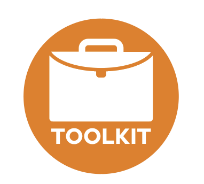
Edition #12
HOW DO WE CELEBRATE SUCCESS?
The final edition of the Graduate Teacher Learning Series focuses on how we celebrate success. This edition includes articles on successful transitions, celebrating, reflecting and preparing and responding to success. We also have the final versions of the Toolbox articles and we complete our Playing with Podcasts series where we talk to graduates, their mentors and experts around Victoria.
PUBLISHED DATE: 11 December 2019
THE TEACHING YEAR
In this final edition, Belinda talks about reflecting upon the year, from the first week to where you sit now and how you can use that to have a discussion with your mentor to shape how your prepare yourself for next year and beyond.
FEATURE ARTICLES:
In each edition we will feature articles written by various authors around three key areas.
1. Student Engagement as a Behaviour Management Strategy
2. Teacher Wellbeing & Resilience
3. Using Formative Assessment to Improve Learning
The three feature articles for this edition can be accessed from the links below.

SUCCESSFUL TRANSITIONS
FOCUS AREA: Student Engagement as a Behaviour Management Strategy
By: Siobhan Hanan, Kayla Kelly, Kate Chinner, Laura Zinghini, Marino D’Ortenzio collated by Lori Pereira
Teachers play an important role in transitions; we need to be aware of our responsibilities and the ways we can be additionally supportive.
CELEBRATING, REFLECTING AND PREPARING
FOCUS AREA: Teacher Wellbeing & Resilience
By: Mel O’Reilly, a teacher at Findon Primary School.
Term 4 is a great time to reflect on and celebrate progress made in your teaching practices, as well as put plans in place to prepare for the next year.
RESPONDING TO STUDENT SUCCESS
FOCUS AREA: Using Formative Assessment to improve student learning.
By: Emma Parnell with Lori Pereira
Our role as educators is to ensure all students celebrate success in their learning. Growth is expected of all students and the challenge for educators is to set those expectations within the classroom so this occurs.

PLAYING WITH PODCASTS
Playing with podcasts brings together the different perspectives of graduate teachers, mentors and experienced teachers.
Playing with podcasts brings together the different perspectives of graduate teachers, mentors and experienced teachers. In this edition, we talk to graduate teacher Lauren Santalucia and her Mentor Laura Zinghini at Melba College. We also speak to Terri-Lee Fitzpatrick a LOTE (Warrawong Language) teacher from Thornbury Primary School.
Interview with a Graduate
Interview with a Mentor
Interview with an Expert

MAKING THE MOST OF MENTOR CONVERSATIONS
Assistant Principal Julie Andrews from North Geelong Secondary College writes about the transition process and what it means for you as a teacher.
UNDERSTANDING THE EDUCATION LANDSCAPE
This final toolbox article looks back over the topics that were covered in each edition and provides you with a quick reference link to each article to help with your preparation for the future.
WHAT WORKED FOR ME
Recent graduate teacher Noah Kim discusses approaches to reflection and celebrating your successes from the year. In addition to this, Noah explores how you can apply a “critical lense” to your teaching practice so you can look for continued improvement in the future.
SECURING YOUR FUTURE
This section is designed to help you consider the next steps in your career. In this edition we explore considerations if employment is not immediate as a final concept fo the topics that were covered in the previous four editions.
Victorian Institute of Teaching
The Victorian Institute of Teaching (VIT) is an independent statutory authority for the teaching profession, whose primary function is to regulate members of the teaching profession. It is a legal requirement for all teachers to be registered with VIT in order to be employed in a school or early childhood education and care service or Victorian children’s service.
The VIT specifies the requirements for moving from provisional to full registration on their website. After graduation, graduate teachers register with the VIT as provisionally registered teachers. To achieve full registration by the end of the second year of teaching, graduate teachers must provide the VIT with the evidence that they:
- have met the Australian Professional Standards for Teaching at the proficient teacher level using the inquiry approach, and
- have taught for a total of at least 80 days in one or more Australian or New Zealand schools or early childhood services.
Teacher mentors work with graduate teachers to undertake professional learning, which may include peer observation to continuously improve their teaching, collect evidence of their work and apply for full registration.
For further information see: www.vit.vic.edu.au/registered-teacher/moving-to-full-registration
eduPay
eduPay is the Department’s HR and payroll system. You can apply for leave and check your leave and pay information using eduPay Employee Self Service (ESS).
You can login to eduPay System via your school internet connection at: https://edupay.eduweb.vic.gov.au/
If you wish to access eduPay and ESS from an external location, such as from home, you can login at: https://ess.sras.eduweb.vic.gov.au/
Edumail
Edumail is the Department’s email system system. You can access your emails and digital communications using Edumail.
You can login to the Edumail System via the following linkt: https://www.edumail.vic.gov.au
Australian Education Union
The Australian Education Union (AEU) represent and advocate for all teachers, principals and support staff working in government schools, early childhood, TAFE, disability and adult education.
The AEU note that “graduate teachers face specific challenges at work” and have developed a specific resource for graduate teachers which includes a New Educators Network (NEN) and information about pay and conditions.
For further information see: https://www.aeuvic.asn.au/your-job/graduate-teachers
Victorian Curriculum and Assessment Authority
The Victorian Curriculum and Assessment Authority (VCAA) provides high-quality curriculum, assessment and reporting advice for all Victorian students. Engagement with the resources will depend on the learning area and level being taught.
The following links will provide graduate teachers with further information regarding:
- Victorian Early Years Learning and Development Framework (VEYLDF) – https://www.vcaa.vic.edu.au/Pages/earlyyears/index.aspx
- Victorian Curriculum F-10 – https://www.vcaa.vic.edu.au/pages/foundation10/f10index.aspx
- National Assessment Program Literacy and Numeracy (NAPLAN) – https://www.vcaa.vic.edu.au/Pages/prep10/naplan/index.aspx
- Victorian Certificate of Education (VCE) – https://www.vcaa.vic.edu.au/Pages/vce/index.aspx
- Victorian Certificate of Applied Learning (VCAL) – https://www.vcaa.vic.edu.au/Pages/vcal/index.aspx
The VCAA also implements Vocational Education and Training (VET) opportunities for senior secondary students and celebrate student achievement through excellence and awards programs, such as the Season of Excellence.
For further information see: https://www.vcaa.vic.edu.au/
FUSE
FUSE is a Department portal with a wide variety of teaching resources. You can use FUSE to:
- DISCOVER: filter, browse and discover resources for learning and teaching
- ENGAGE: immerse yourself in content with a range of great resource types, as a teacher you can even create groups and personalise resources
- SHARE: connect your learning and teaching with others by using the sharing features on all FUSE resources
You will need your eduMail details to access some features of FUSE, such as uploading your own content and sharing packages of resources.
For further information see: https://fuse.education.vic.gov.au/
In Our Classrooms
In Our Classrooms is an online space for teachers to find best practice approaches, evidence-based classroom resources, professional development opportunities and stories that celebrate the education profession. New articles are sent automatically in a newsletter each fortnight to all Victorian government school teachers, but In Our Classrooms is open to anyone interested in best practice in education and evidence-based teaching approaches.
For further information see: https://www.education.vic.gov.au/school/teachers/classrooms/Pages/default.aspx
To subscribe to In Our Classrooms: https://confirmsubscription.com/h/d/9DC75686B8867D58
The Victorian Teaching and Learning Model
The Victorian Teaching and Learning Model (VTLM) brings the framework for improving student outcomes (FISO) into the classroom. It creates a line of sight between the whole-school improvement approach and classroom practice.
The Victorian teaching and learning model consists of four components:
- A Vision for Learning helps create a unified set of values and beliefs to drive a high performance learning culture.
- The Practice Principles for excellence in teaching and learning (Practice Principles) are nine signature pedagogies which make the difference in improving student achievement and motivation.
- The Pedagogical Model describes what effective teaching looks like in the classroom and helps teachers apply the practice principles.
- The High Impact Teaching Strategies (HITS) are ten instructional practices that reliably increase student learning wherever they are applied.
For further information see: https://www.education.vic.gov.au/school/teachers/teachingresources/practice/improve/Pages/Victorianteachingandlearningmodel.aspx
The Literacy Teaching Toolkit
The Literacy Teaching Toolkit provides practical advice and high impact teaching practices that improve outcomes in reading, writing and speaking and listening. It includes specific resources for teaching literacy in Primary and Early Childhood as well as a guide to designed to support school leaders and teachers to understand and use the toolkit.
For further information see:
School Term Dates
You can access the School Term Dates and Holidays in Victoria through the following link:
https://www.education.vic.gov.au/about/department/Pages/datesterm.aspx?&Redirect=1
The Learning Series is designed for you, the Graduates and it is important that you provide feedback and share your ideas so that we can continue to develop and improve the content for our future issues.
Your feedback drives the ways in which we plan and present the content in each edition so please take the time to share your thoughts and ideas and play a role in driving this program.





